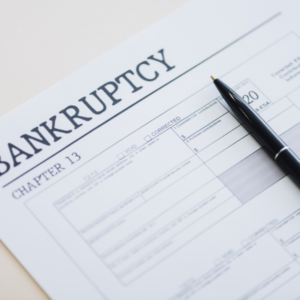Difference between bankruptcy chapters

If you are considering taking the step of filing for bankruptcy to get on the path toward financial health and free yourself of crushing debt, you will find that the Bankruptcy Code offers multiple types of bankruptcy. But you may not fully understand the differences between each of the types, or Chapters, of bankruptcy.
A knowledgeable North Carolina bankruptcy attorney from Sasser Law Firm can discuss your options and provide honest, straightforward advice regarding whether bankruptcy represents the right option for you and which type of bankruptcy you should pursue.
What Are the Different Chapters of Bankruptcy?
The Bankruptcy Code offers four primary types of bankruptcy for individuals and businesses:
Chapter 7
Also known as liquidation bankruptcy, Chapter 7 bankruptcy requires an individual or business debtor to liquidate or sell all their non-exempt assets to generate cash that is used to pay creditors. In many Chapter 7 cases, creditors may only receive a fraction of the total debt owed to them. But at the close of a Chapter 7 bankruptcy, all eligible debts are discharged by the bankruptcy court, and the debtor no longer has any obligation for those debts.
Chapter 11
Also called reorganization bankruptcy, Chapter 11 is used by businesses as well as by individuals with high net worth or complex assets. In Chapter 11, the debtor seeks to restructure its business operations, including selling off unprofitable lines of business and establishing a plan to emerge from bankruptcy in a financially healthy situation to pay back creditors. Chapter 11 reorganization may also include working with creditors to alter debts, including modifying the size of the debt, interest rates, or the maturity date.
Chapter 12
Chapter 12 bankruptcy is intended for family farmers and family fishermen, with special provisions intended to help farmers and fishermen keep property and equipment while developing a plan to pay back creditors under a three- to five-year plan.
Chapter 13
Also known as a “wage earner’s plan,” Chapter 13 is intended for individuals with regular income to develop a three- to five-year plan to pay back part or all of the debt they owe.
Difference Between Chapter 7, 11, 12, and 13 Bankruptcy
The major difference between bankruptcy under Chapter 7 vs. 13, 12, or 11 is that Chapter 7 requires a debtor to sell off their assets to generate cash to pay back creditors, while Chapter 11, 12, and 13 allow a debtor to remain in possession of their assets. The other chapters involve paying back part or all of the debtor’s debts via their income over a multi-year plan approved by the bankruptcy court.
While Chapter 7 bankruptcy may be used by both individual and business debtors, Chapter 11 bankruptcy is primarily intended for businesses (although individuals may use it under certain circumstances). This is a major difference between Chapter 11 vs Chapter 12, which is designed specifically for family farmers and fishermen. And, finally, Chapter 13 is intended for use by all other individuals (including married couples filing jointly).
Need Help Filing Bankruptcy? Contact an Experienced North Carolina Bankruptcy Lawyer Now
If you have questions about the bankruptcy process, would like to know more about what is the difference between bankruptcy chapters, or want to know about which type of bankruptcy you may be eligible to file for, contact Sasser Law Firm today. We provide a free, confidential consultation with an experienced North Carolina bankruptcy lawyer who can explain your legal rights and options.
Our firm has three board-certified bankruptcy specialist attorneys who are ready to help you. We have handled more than 7,000 bankruptcy claims for individuals and businesses. We are equipped to take on the most complex cases, whether you’re facing an emergency like foreclosure or your case needs ongoing attention. Give us a call at (919) 319-7400 today to get started.
- About the Author
- Latest Posts
For more than 20 years, the Sasser Law Firm has been helping individuals and business owners sort through financial hardships to see the light at the end of the tunnel. Our North Carolina bankruptcy attorneys are all board-certified specialists, which means we have passed a complex exam, undergone a thorough peer review, and continue to earn legal education credits in this ever-evolving area of law.














